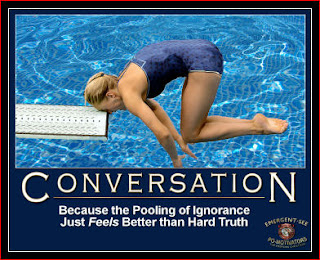
The news of Yousef Nadarkhani, an Iranian pastor facing possible execution, has made the headlines. A good treatment of his case can be found here.
Now compare him with the brash and insolent Perry Noble:
Noble, who claims to be a pastor, doesn't want to spend time with the people of his pasture (they make him uncomfortable) and abhors the idea of doing hospital visitations while the sick person is still alive (he might agree to visit when they're dead!).
Square that with the words of the Lord Jesus Christ (the One Noble claims to serve!):
"When the Son of Man comes in his glory, and all the angels with him, then he will sit on his glorious throne. Before him will be gathered all the nations, and he will separate people one from another as a shepherd separates the sheep from the goats. And he will place the sheep on his right, but the goats on the left. Then the King will say to those on his right, 'Come, you who are blessed by my Father, inherit the kingdom prepared for you from the foundation of the world. For I was hungry and you gave me food, I was thirsty and you gave me drink, I was a stranger and you welcomed me, I was naked and you clothed me, I was sick and you visited me, I was in prison and you came to me.' Then the righteous will answer him, saying, 'Lord, when did we see you hungry and feed you, or thirsty and give you drink? And when did we see you a stranger and welcome you, or naked and clothe you? And when did we see you sick or in prison and visit you?' And the King will answer them, 'Truly, I say to you, as you did it to one of the least of these my brothers, you did it to me." (Matt. 25:31-40)
Can you come to grips with the idea of Noble being willing to die for his faith? I certainly cannot by any stretch of the imagination! If mere association with Christ's sheep rubs him wrong, then to claim love for the sheep owner is a blatant lie. In fact, "If anyone says, 'I love God,' and hates his brother, he is a liar; for he who does not love his brother whom he has seen cannot love God whom he has not seen" (1 John 4:20).
By now it must be pretty obvious what a real pastor is, and that Perry Noble does not measure up (not even an inch). If not, then the following lectures from Sinclair Ferguson should bring home the point pretty well, i.e., the pastor is called to give his life for his Master's sheep.















